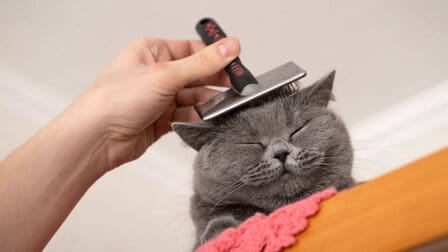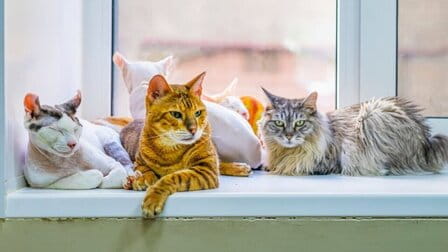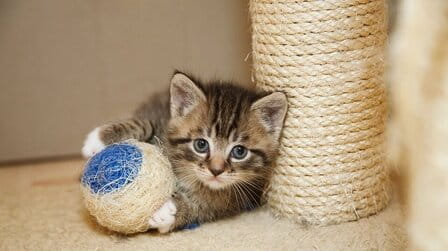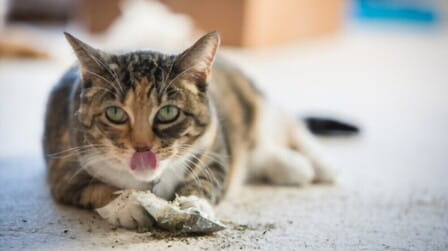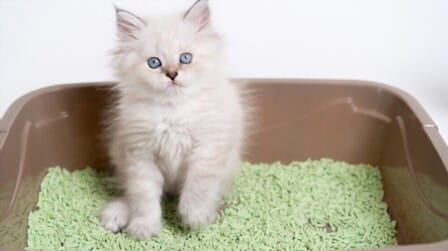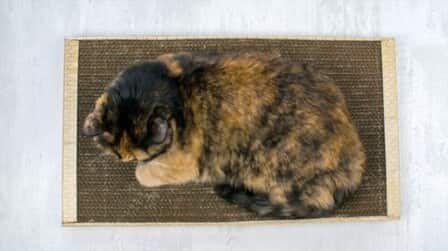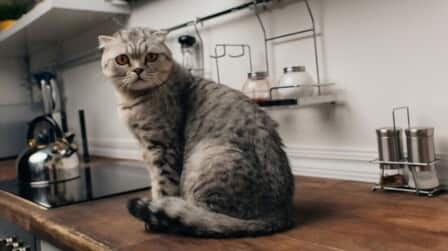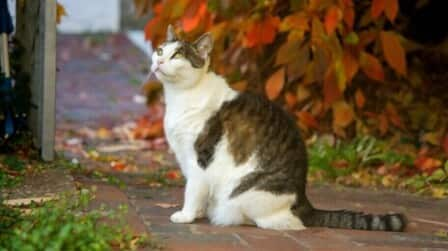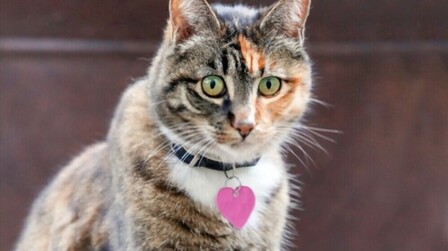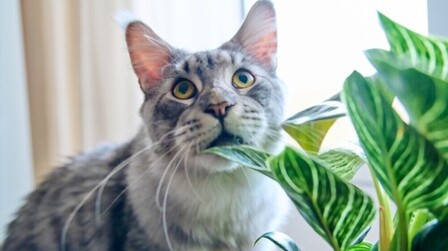The British shorthair is an adorable cat breed with big eyes, round heads, and color-varying fur colors. They are recognized as one of the most favorable domestic pets in any country around the world. The British shorthair, like any cat breed, is not immune to several health problems. For first-hand experienced parents, this is not a pleasant situation. When engaging in certain conditions, the British shorthair is difficult to take care of, especially the kittens. Getting to know this issue, we have discovered and gathered some information that we believe to be handy under the circumstance.
1. The British Shorthair's Features
Appearance
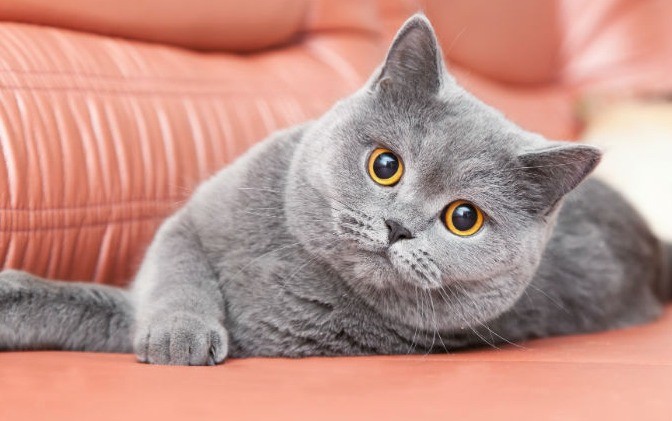
Firstly, for the appearance, the British shorthair has a round head with chubby cheeks, big round eyes, and a thick dense short fur coat. Their fur can vary in colors, including the classic gray-blue, white, golden, or mixed. The classic gray blue is the most favorable for its expression of elegance. The bi-color or tri-color style is also one of my favorites.

Their legs are both strong and thick. They have a broad chest with neck muscles. The British shorthair is usually weighed from 7 to 17 pounds with a height of 12 to 15 inches. They often live for 15 or 20 years, depending on the living environment, diets, and genetic inheritances.
Personal traits

This cat breed is smart, easy-going, friendly, and charming. They are smart without showing off to you. You can easily teach them tricks or train them. The British shorthair is highly recommendable for first-time parents.
They are also friendly. They can live with children, the elderly, and other pets. They will be friendly among your family and are a great domestic pet to have around. When taking a British shorthair kitty home, you will not have to worry much about its behavior around kids or other pets. However, it is never a bad idea to pay some attention. The kitty when first arriving home will need your care and attention as it has to discover the environment and people surrounding it.

If you are concerned that they may shed a lot around the house, the answer is that the British shorthair does not shed that much. They will shed in certain periods throughout the year. In the time remaining, they will barely shed. To improve the situation, you should brush their fur daily to reduce the shedding amount. The fur brushing also helps the British shorthair to stay relaxing.
Last but not least, their active and playful level is only considered as a medium. Like most other cats, the British shorthair is not the most energetic breed adopted. As you raise a British shorthair kitty, spending some time during the day playing with it is advisable. It will not waste too much time. The independent trait in cats is also greater than that in dogs.
2. How To Keep Your British Shorthair In The Best Health Condition?
The British shorthair can have several serious diseases both natural and genetic inherited. There is evidence found proving that hypertrophic cardiomyopathy (HCM) is highly genetically inherited in this breed and many others. Hypertrophic cardiomyopathy causes blood pumping deficiency while thickening the heart's muscle.
Deafness, Parasites, and cataracts (an eye disease) are also common in the British shorthair. They can be happening at any cat of any age range for early development. However, the mature ones are more likely to face the risk. One more common health condition occurring in the British shorthair is the state of being overweight. Veterinarians have found out that more than 50 percent of domestic cats are facing the risk of obesity, which is a result of free feeding and being overweight. So, to avoid such serious conditions, what can you do to keep the kitty healthy?
Adapting to nutrition demands in their diets

Cats are carnivores, keep this in mind. They need a lot of animal-based proteins instead of carbs or starches. The nutrition demands are essential for your kitty's development. The British shorthair also needs enriched vitamin supplies, particularly vitamin A, taurine, and arachidonic acid in their meals.

When all the nutrition requirements are met, you should determine a suitable feeding intensity. Instead of free feeding or 7 to 10 times a day, we suggest that you decrease the feed times down to 3 or 5 maximum. Each meal should provide your cat with a sufficient, not redundant amount. This plays a vital role in helping your cat fight against obesity. Last but not least, a baby cat's nutrition and amount demands are different from those of mature cats. The requirements will change through the time.
Notes: Cats or any domestic animal must not eat human food or spice. This will cause digestive issues for your pets. Besides, make sure your cat drinks its water.
Keep them as clean as possible

Keeping your pet clean is one of the most basic standards when you start to think of adopting a pet. Keeping it fed, clean, and happy is the key. Cats, in general, are much cleaner than dogs. They dump in a litter box, do not dig or play around the dirt, and bathe themselves frequently. But this is not enough.
For your British shorthair or any cat breed, you should bathe it at least one time in 7 days to get rid of the bacteria and keep the fur clean. When bathing, use the specific gel for each type of color. For instance, the bathing gel you use on the white British shorthair will not be the same as the one used for the gray-blue cat. You must dry the fur absolutely for skin conditions avoidance.

Brushing is recommendable daily as it partly helps the fur be more smooth and softer to touch. Moreover, you can get the dirt out if it is on your cat's body. Brushing is a way to tell the cat you are paying attention to them, which makes the cat satisfied.
Ears and paws are important as well. Make sure you clean their ears with soft material and a special liquid for ears. You will need to trim the claws carefully too. These all will not be easy, but they must be done for the cat's hygiene.
Keep up the playful part in them

Raising a pet always means spending time and attention for them. You cannot adopt a cat and make it happy without endless love and patience. Keeping up the playful part in your cat is crucial. You will achieve this through playing with them to release the inner energy. You do not need to take your cat outside for a walk as you must in dogs. Though cats can be playful and dynamic, they cannot compare to dogs.
Maintaining this character is not a hard task. All you need gently is to approach your cat, prepare a few toys it loves, then you can play with them and get them active. Keeping the British shorthair active can help fight obesity and other severe diseases caused by the state of being overweight.
Pay attention to your cat and maintain a safe environment

Pets are like babies, they all need attention, gentle care, and a safe environment to grow up. As you adopt a baby British shorthair, you should watch them closely in the first period. Through this, you can ensure its behaviors or unusual symptoms for early prevention and treatment. In its surrounding environment, there should not be sharp or chewable items. Your cat can either get hurt or chew what it has found. Lastly, always keep the room clean and dry.
Conclusion
It is not easy at all to adopt a pet. For the first-hand parents, this is your big decision. You learn to be more responsible, loving, and patient. Tips for keeping your British shorthair kitty healthy are adapting the nutrition needs, keeping them and their living environment clean, spending time playing and petting them, and always observing its behaviors. That is all our advice to you.

